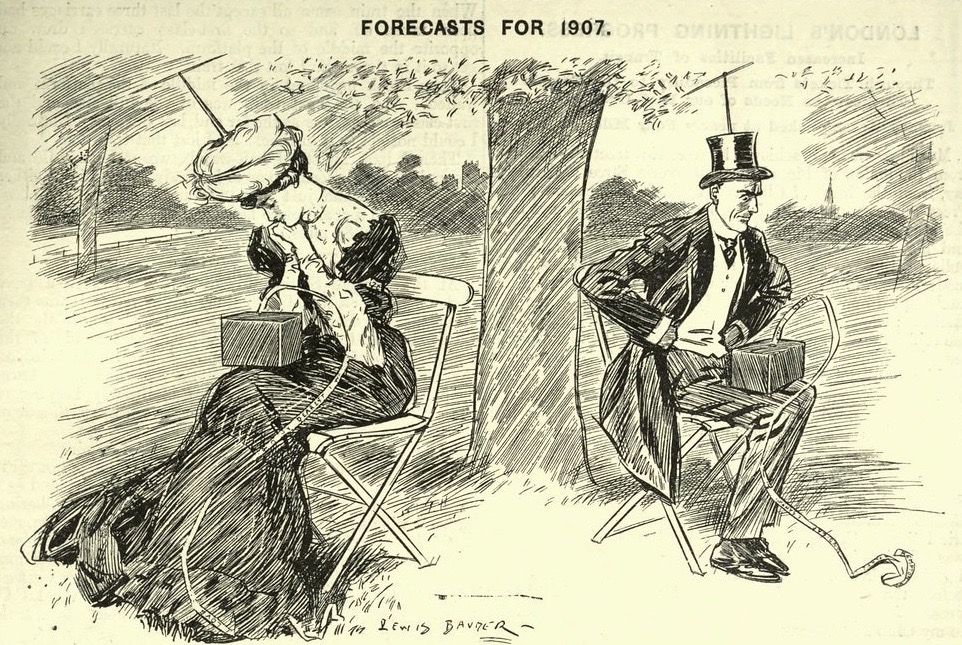Asymmetric Possibilities

The other night, I was reading through the cover story for this month's issue of The Atlantic, The Bad Guys Are Winning by Anne Applebaum. I got to the part about Russia helping to provide the autocratic guidebook to Belarus' dictator, Alexander Lukashenko, in order to crush the protests in the country. I got this feeling in my core that I was at my limit of bad news for the day. This month's Atlantic is full of depressing material, including even a story about a boxer that killed another boxer in the ring and then resumed his career boxing (and was even directed by a Christian pastor to do so).
I went upstairs and got on my iPad to check my email. I had a weekly article roundup message from the Matter service. The first story being promoted was called "The Case for Optimism." It struck me that this was exactly what I needed to be reading. I saved the article to Pocket to read later on my Kobo. It turned out the article was written by Kevin Kelly, the founder of Wired Magazine, and a technology optimist. Kelly is also just a glass half-full guy in general. In the piece, that he wrote for Warp News, a few months back, he lays out his case for looking on the bright side. While I was reading the article, and before I had realized who Kelly was, I had a little skepticism about what he was writing. His projections for a better future were highly speculative, although they were based current and very possible upcoming technological advances. It reminded me a bit of those who predicted that the rise of computers and automation would give us humans more leisure time only to be proven not only wrong, but wrong in the completely opposite direction. As many an article has explored recently, we've mostly taken automation and efficiency and filled up whatever time it's given us often times with more ways to be available for work (though I am blessed to work for a company with a good culture around work/life balance).
When I got to the end of the article, I read the bio and realized who it was that had written the piece. I wrote a blog post earlier this year about a wager that Kevin Kelly made years ago, based on similar technologically-driven optimism. When examining Kelly's claims now, it's important to remember that, after 25 years, the outcome of the wager was barely decided in Kelly's favor, despite the fact that his opponent, neo-Luddite Kirkpatrick Sale, had predicted nothing less than societal collapse. If that doesn't make you wary of accepting Kelly's claims uncritically, I don't know what would.
Kelly makes prognostications such as ubiquitous AI replacing jobs that humans don't want to do, while humans are left for "innovation, entrepreneurship, art, caring, hospitality, science and discovery." We don't value those who make art, provide care and hospitality services now and I'm not sure how advances in AI are going to change that dynamic and mentality. He also mentions universal connectivity enabling cooperation at a scale never before possible. If something like Facebook is to be taken as an example of universal connectivity (and it probably should be, since it has the largest user base of any communications platform), then greater connectivity will lead to greater division and deception.
I hate to be a downer and feed the stereotype of the pessimist that Kelly creates. It's hard not to be, though, because the techno-utopian dreams that have been constructed have gone so wrong. In the end, though, Kelly thinks we'll be able to solve the problems that have arisen from technological progress.
We should be optimistic not because our problems are smaller than we thought, but because our capacity to solve them is larger than we thought.
I would love to believe this overall premise, but it hasn't been born out by the events of the last few years. Even scientific miracles like hastily created mRNA vaccines can't succeed if the people involved in ensuring their success don't perform their part in that process. It seems as if technological advances of the last few years have only served to shine a spotlight on our broken humanity. None of what Kelly brings up convinces me that's going to change anytime soon. I'm glad that my hope does not stem from technology or people.



